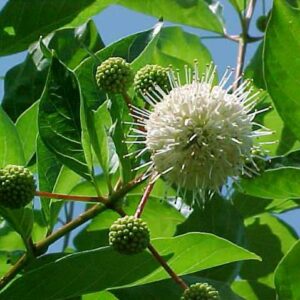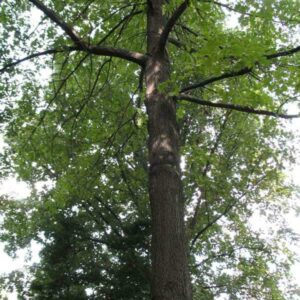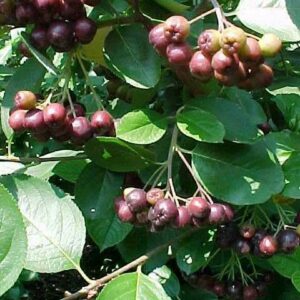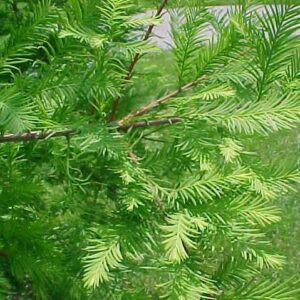Description
Type: Deciduous tree
Family: Rosaceae
Height: 50-80 feet
Spread: 30-60 feet
Native Range: North America, in Missouri in lowland and upland woods and along streams throughout the state
Site Requirements:
Soil: well drained
Water: medium
Sunlight needs: Full sun to part shade
Landscape use: Medium to large flowering shade tree
Brief Description: One of the largest of the cherries with a narrow-columnar to rounded crown. Fruits are bitter and inedible fresh off the tree, but can be used to make jams and jellies and are attractive to wildlife. Mature trees develop dark scaly bark. Bark, roots and leaves contain concentrations of toxic cyanogenic compounds, hence the noticeable bitter almond aroma of the inner bark. Native Americans prepared decoctions of the inner bark for cough medicines and tea-like cold remedies. Hard, reddish-brown wood takes a fine polish and is commercially valued for use in a large number of products such as furniture, veneers, cabinets, interior paneling, gun stocks, instrument/tool handles and musical instruments.
Wildlife Benefits: Attracts birds
Possible Problems: As with most cherries it is susceptible to a large number of insect and disease pests. Potential diseases include leaf spot, die back, leaf curl, powdery mildew, root rot and fireblight. Potential insects include aphids, scale, borers, leafhoppers, caterpillars, tent caterpillars and Japanese beetles. Spider mites may also be troublesome.
Stand out Features: Showy, white fragrant blooms in late spring and good fall color
Read more here.
Additional information
| Common Name | black cherry |
|---|---|
| Scientific Name | Prunus serotina |
| Native Range | North America |
| Zone | 3 to 9 |
| Height | 50.00 to 80.00 feet |
| Spread | 30.00 to 60.00 feet |
| Bloom Time | April to May |
| Bloom Description | White |
| Sun | Full sun to part shade |
| Water | Medium |
| Maintenance | Low |
| Suggested Use | Shade Tree, Flowering Tree |
| Flower | Showy, Fragrant |
| Attracts | Birds |
| Fruit | Showy |
| Leaf | Good Fall |





